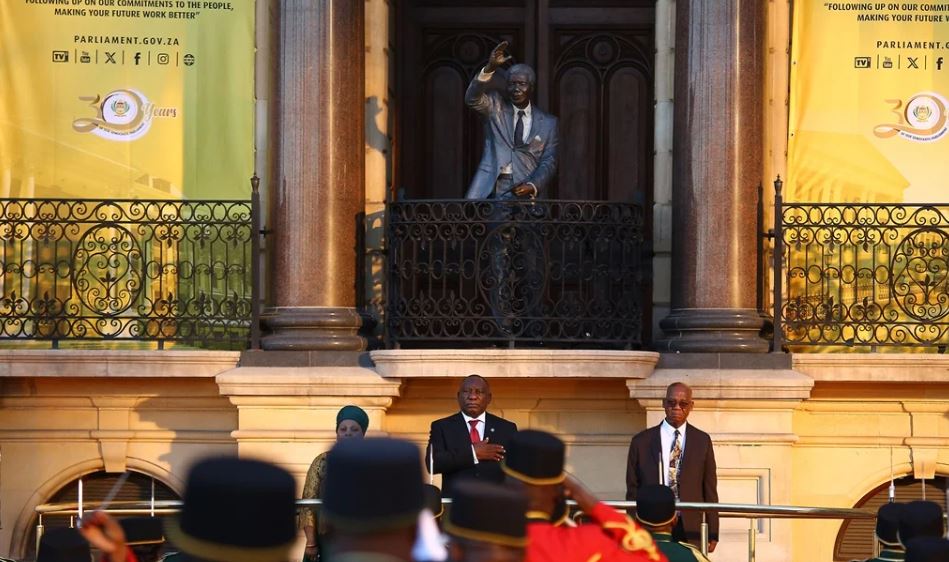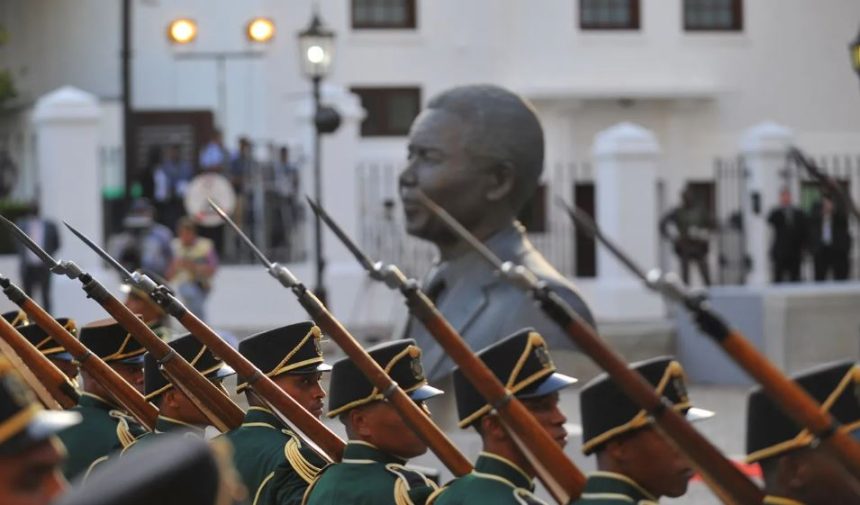On Thursday, South African President Cyril Ramaphosa inaugurated the new parliament, nearly two months after a landmark election that dramatically reshaped the country’s political landscape and led to the formation of a groundbreaking multi-party coalition government.
Ramaphosa addressed lawmakers at Cape Town City Hall, the temporary venue replacing the fire-damaged parliament building, marking the official start of the new coalition government, which includes representatives from at least 10 different parties.
In his speech, Ramaphosa emphasized the coalition’s unified focus on addressing South Africa’s three major challenges: high unemployment, widespread poverty and inequality, and the weakened state institutions plagued by corruption and mismanagement—issues largely attributed to the African National Congress (ANC), his own party.
The May 29 election was a pivotal moment for South Africa. Frustrated by persistent issues, voters delivered the ANC its worst electoral defeat in three decades, ending the party’s long-standing majority that had persisted since the end of apartheid.

“Despite the progress of 30 years of democracy, millions of South Africans still face poverty, unemployment, and deep inequality,” Ramaphosa acknowledged, also recognizing some failures of the ANC. “Today’s circumstances demand that we work together,” he added.
The speech marked the beginning of what South Africa refers to as “the seventh administration,” the seventh government since the country’s liberation from apartheid in 1994, which allowed universal suffrage.
Ramaphosa’s address was a call for unity across political divides and received general approval from lawmakers, including many from the Democratic Alliance, once the ANC’s fiercest rival, now part of the governing coalition.
The newly formed MK party, led by former president Jacob Zuma, who was disqualified from parliament due to a criminal conviction, has become the official opposition. Zuma was absent from the session, and MK MPs, along with members of the Economic Freedom Fighters party, kept a low profile during the proceedings.
Ramaphosa, starting his second and final five-year term, faces the challenge of maintaining a broad coalition with significant political differences while addressing severe national issues. South Africa has the world’s highest unemployment rate at 32%, is the most unequal in wealth distribution, and its economy has stagnated for over a decade.
To tackle these challenges, Ramaphosa announced that the coalition government, termed the “government of national unity,” would focus on economic growth and job creation across various sectors, including mining, agriculture, small businesses, and green energy, while aiming to combat corruption and bureaucratic inefficiencies.
His speech, while broad in scope, aimed to foster national unity after a contentious election and emphasize the historic nature of the coalition. “This inter-party cooperation is a historic moment for our country,” Ramaphosa said. “We share a commitment to reconciling our nation.”





